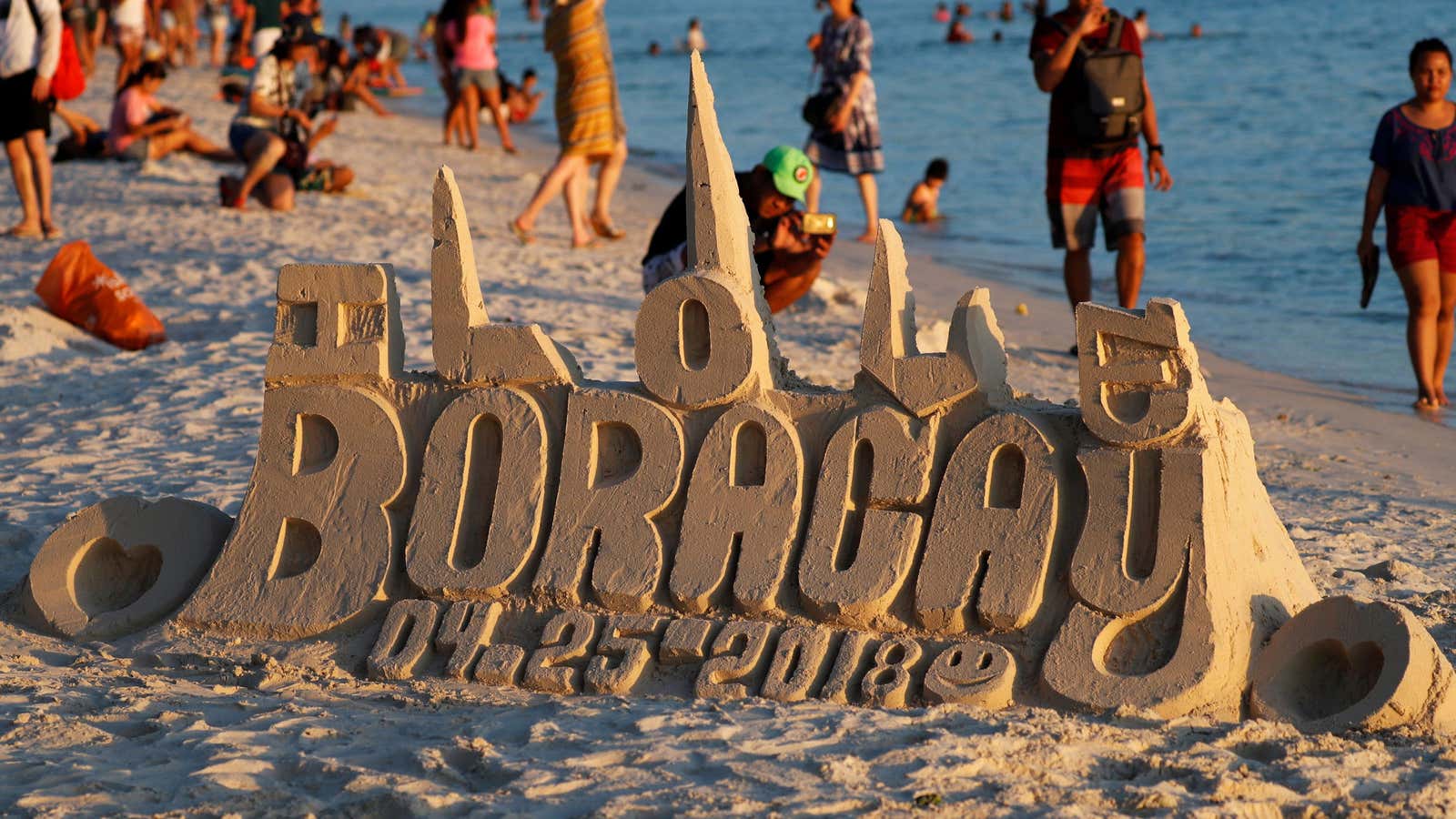In April, Philippine president Rodrigo Duterte ordered a six-month closure of the tourist hotspot of Boracay after he said poor sewage treatment there had turned it into a “cesspool.” Today (Oct. 15), the island reopens for a 10-day dry run before officially welcoming tourists again on Oct. 26—with a large list of restrictions.
Duterte said today that “Boracay is no longer a cesspool,” as the island reopened its doors to locals only after a host of upgrades were implemented, including a new system to take trash out of the island everyday, a beach clean-up, and new rules mandating how hotels should treat their sewage. The government also said that the number of tourists allowed to enter Boracay will be capped, and flights to the island would be limited.
Philippine tourism secretary Berna Romulo-Puyat said that even though the beaches have been cleaned up, full rehabilitation of Boracay could take two years.
Anyone looking to visit Boracay, however, has to keep a huge list of no-no’s in mind. Among these: no more beach parties, no water sports, and no more beach-side henna tattoos. Even the construction of sandcastles will be limited, affecting the livelihoods of many who sculpt them for tips.
Thousands of Filipinos working on Boracay had to relocate as a result of the closure, with the government subsidizing their transportation costs to go home. Others took temporary jobs offered by the government, such as street cleaners and laborers.
Some 2 million people visited Boracay in 2017, with most tourists coming from China and South Korea.
The Philippines isn’t the only country that’s taken the drastic step of closing down tourist hotspots for respite—Thai authorities in June said they would shut down Maya Bay in the Phi Phi Islands initially for four months, but that was recently extended to at least a year. Venice also recently imposed a slew of restrictions on tourists, including bans on sitting in various public places, feeding pigeons, and cycling.
